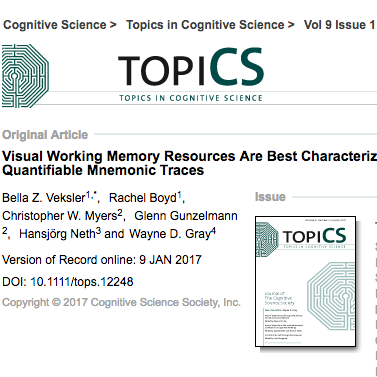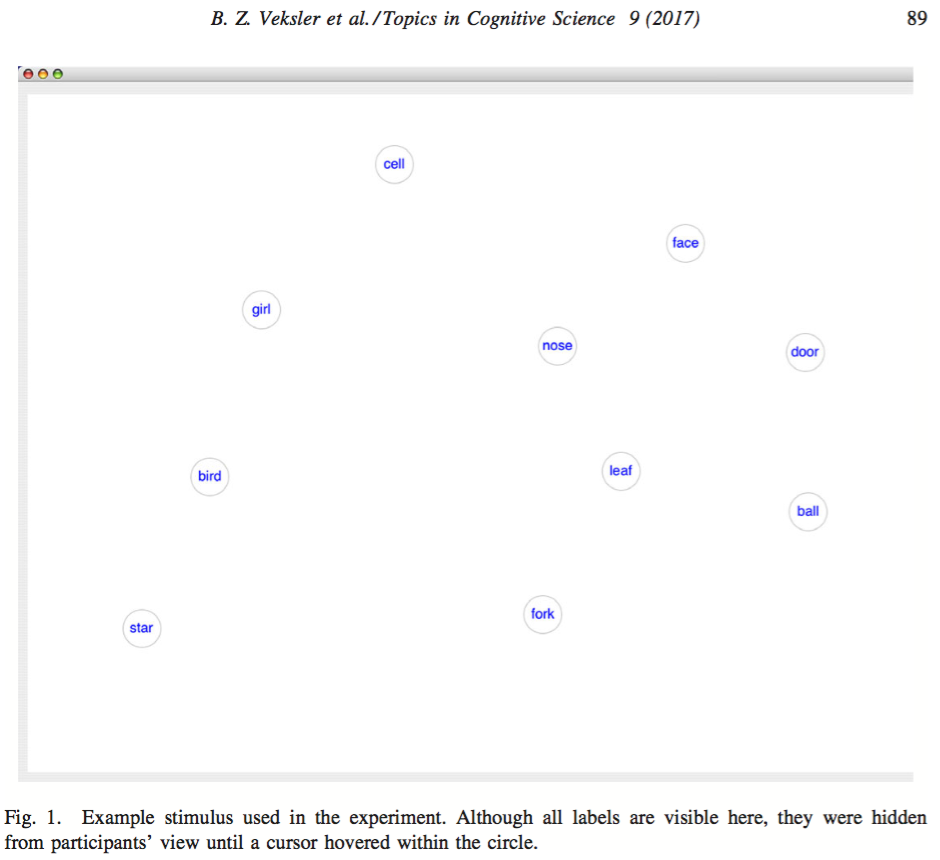Posts Tagged: visual search


Paper: Visual working memory resources as item activation
Donald D. Hoffmann (1998), p. XII
and those involved in symbol manipulation and the organization of complex behaviors.
Ballard et al. (1997), p. 723
Bella Z. Veksler, Rachel Boyd, Christopher W. Myers, Glenn Gunzelmann, Hansjörg Neth, Wayne D. Gray
Visual working memory resources are best characterized as dynamic, quantifiable mnemonic traces

An example stimulus used in the paradigm of repeated serial search.
Abstract: Visual working memory (VWM) is a construct hypothesized to store a small amount of accurate perceptual information that can be brought to bear on a task. Much research concerns the construct’s capacity and the precision of the information stored. Two prominent theories of VWM representation have emerged: slot-based and continuous-resource mechanisms. Prior modeling work suggests that a continuous resource that varies over trials with variable capacity and a potential to make localization errors best accounts for the empirical data. Questions remain regarding the variability in VWM capacity and precision. Using a novel eye-tracking paradigm, we demonstrate that VWM facilitates search and exhibits effects of fixation frequency and recency, particularly for prior targets. Whereas slot-based memory models cannot account for the human data, a novel continuous-resource model does capture the behavioral and eye tracking data, and identifies the relevant resource as item activation.